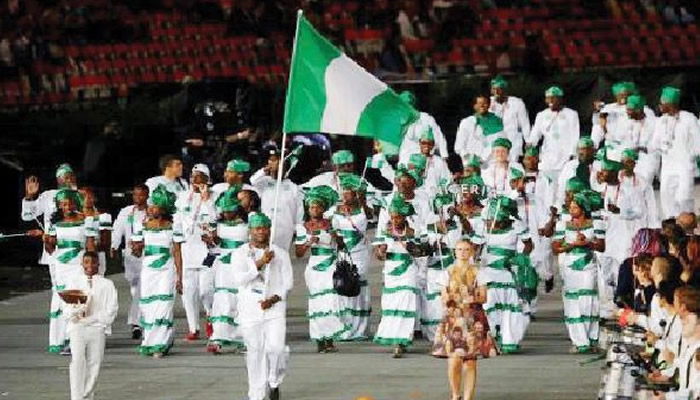
A reflection on Nigerian sports and its future at major competitions following the country’s poor performance at the Paris 2024 Olympics.
Once again, the spotlight is on the woes of Nigerian sports after the country failed to secure a medal at the recently concluded 2024 Olympic Games in Paris, marking the eighth occurrence of such disappointment since Nigeria’s Olympic debut in Helsinki in 1952.
The staggering amount of N9bn allocated for Nigeria’s Olympic participation out of a total budget of N12bn, with the remaining N3bn designated for the upcoming Paralympics, raises concerns, especially considering the country’s socioeconomic challenges.
The decision to invest such a significant sum in sending the largest-ever contingent of 88 athletes across 12 sports to Paris has come under scrutiny for its apparent lack of tangible results and its implications on national development.
Notable medal hopefuls among the Nigerian athletes in Paris included Tobi Amusan, Blessing Oborodudu, Ese Brume, and Odunayo Adekuoroye, yet their efforts did not translate into podium finishes, leaving many puzzled by the overall performance.
The Sports Minister acknowledged the subpar results and expressed regret for falling short of expectations despite efforts to adequately support the athletes during training camps in Germany and Spain. However, issues such as visa problems, coaching discrepancies, and administrative oversights plagued the preparation process, contributing to the lackluster showing in Paris.
Critics point to systemic failures in athlete preparation and policy formulation as key factors hindering Nigeria’s success on the international sports stage, emphasizing the need for a strategic shift towards individual athlete development and long-term planning.
Calls for better leadership, investment, and accountability in Nigerian sports are growing louder, as the country grapples with the aftermath of yet another disappointing Olympic campaign.
Moving forward, addressing the issues of poor preparation, inadequate funding, and ineffective administration will be crucial to ensuring Nigeria’s athletes can compete at the highest level and achieve success on the global sporting platform.
After being denied permission to compete in Tokyo, athlete Ese Brume changed her allegiance to her country of birth, the USA, where she went on to win a silver medal at the Olympics. She still holds the African record in the women’s hammer throw.
Reflecting on Nigeria’s untapped talents in sports, Egbunike expressed disappointment in the lack of development and administration in the country. Despite the abundance of talent, Nigeria has not been able to showcase significant achievements on the global stage.
Nigeria seems to attract controversy in international competitions like the Olympics, making headlines for the wrong reasons. From incidents like the exclusion of D’Tigress from the opening ceremony to disputes between sports organizations over athlete selections, the country’s sports administration faces ongoing challenges.
One particular issue arose regarding the discrepancy in training grants given to foreign-based and local athletes, with criticism from renowned athletes like Chioma Ajunwa. The payment disparity could hinder athletes’ preparations for future competitions like the upcoming Olympics in Paris in 2024.
Looking ahead to the Los Angeles Games in 2028, stakeholders and former sports officials emphasize the need for better sports management in Nigeria. Suggestions include reviving the National Sports Commission to oversee sports development and ensure greater accountability within sports federations and the National Olympic Committee.
Former sports figures point out the financial challenges faced by sports federations and the limited resources available for athlete preparation. The lack of funding and sponsorship opportunities hinders the growth of sports in Nigeria, leading to difficulties in sustaining athletic excellence at a global level.
The longstanding struggle for Olympic success in Nigeria has culminated in a call for systemic changes to improve the country’s sports landscape. As Nigerian athletes aim for better performances in Paris and beyond, there is hope for a positive transformation in the nation’s sporting legacy.
